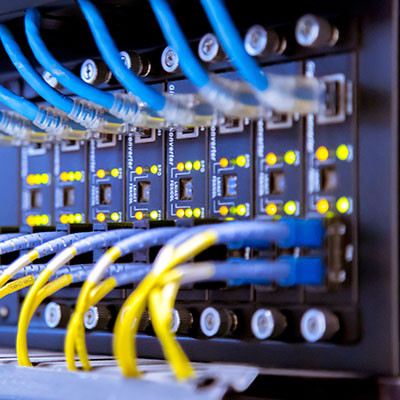The Connection, Inc Blog
Explaining Three Pieces of Basic Networking Equipment
Whether you know how it works or not, your business has an internal network that connects all of its computing infrastructure and resources. Today, we want to take a moment to demystify some of the common networking equipment you might have on-premises and what it all does to contribute to your business’ continued success.
Networking Equipment You’ll Likely See for SMBs
Aside from the cables connecting everything together (that’s its own separate blog article), you can expect to see three different types of networking equipment on a business’ premises. Of course, the type of equipment used is going to depend on the size of the business, the connection’s purpose, and the available bandwidth or resources on the network.
Network Hubs
For all intents and purposes, network hubs are largely obsolete due to how accessible and affordable network switches have become. Still, we thought we would mention it here, as it helps to understand more about where the technology was and how it has grown since.
The network hub itself is a device for use on a private network, meaning there is no connection to computers that are off the network (like the Internet, for example). Hubs will distribute data packets to all connected devices. Naturally, the hub only has so much bandwidth, so the more devices connected to it, the less available bandwidth there will be for each computer. The resulting slow speeds are a pain for any modern business, and there are better options out there for your networking needs nowadays.
Network Switches
The network switch operates in a similar way to a network hub, but it’s much more focused. Rather than broadcasting your data packets to all connected devices all at the same time, it sends them to the intended destination directly, meaning that bandwidth is saved in the process. They are the better option of the two for your in-house network.
Network Routers
What does the network router do if the network hub and the network switch route data to local computers? It’s simple; it does the opposite. A router allows your network to interface with other networks via the Internet. You can think of it this way: a network switch is what connects your computers to the local area network, and the router is what connects that local area network and its devices to other networks, such as the Internet. In essence, it’s an add-on that provides your network with more functionality.
Of course, the type of equipment your business needs will depend on how many users you have and the types of access you need (local or wireless). If you want to make the best decisions possible for your company’s network infrastructure, we recommend you contact us at The Connection. Our trusted technicians can help you realize all of your networking needs. To learn more, call us at (732) 291-5938.
News & Updates
Understanding IT
Get the Knowledge You Need to Make IT Decisions
Technology is constantly evolving, and keeping up can feel overwhelming. Whether you want to understand cybersecurity threats, explore automation, or learn how regulations like PCI DSS impact your business, we’ve made it easy to access clear, straightforward insights on key IT topics.
Contact Us
Learn more about what The Connection can do for your business.
The Connection
51 Village CT
Hazlet, New Jersey 07730


Comments